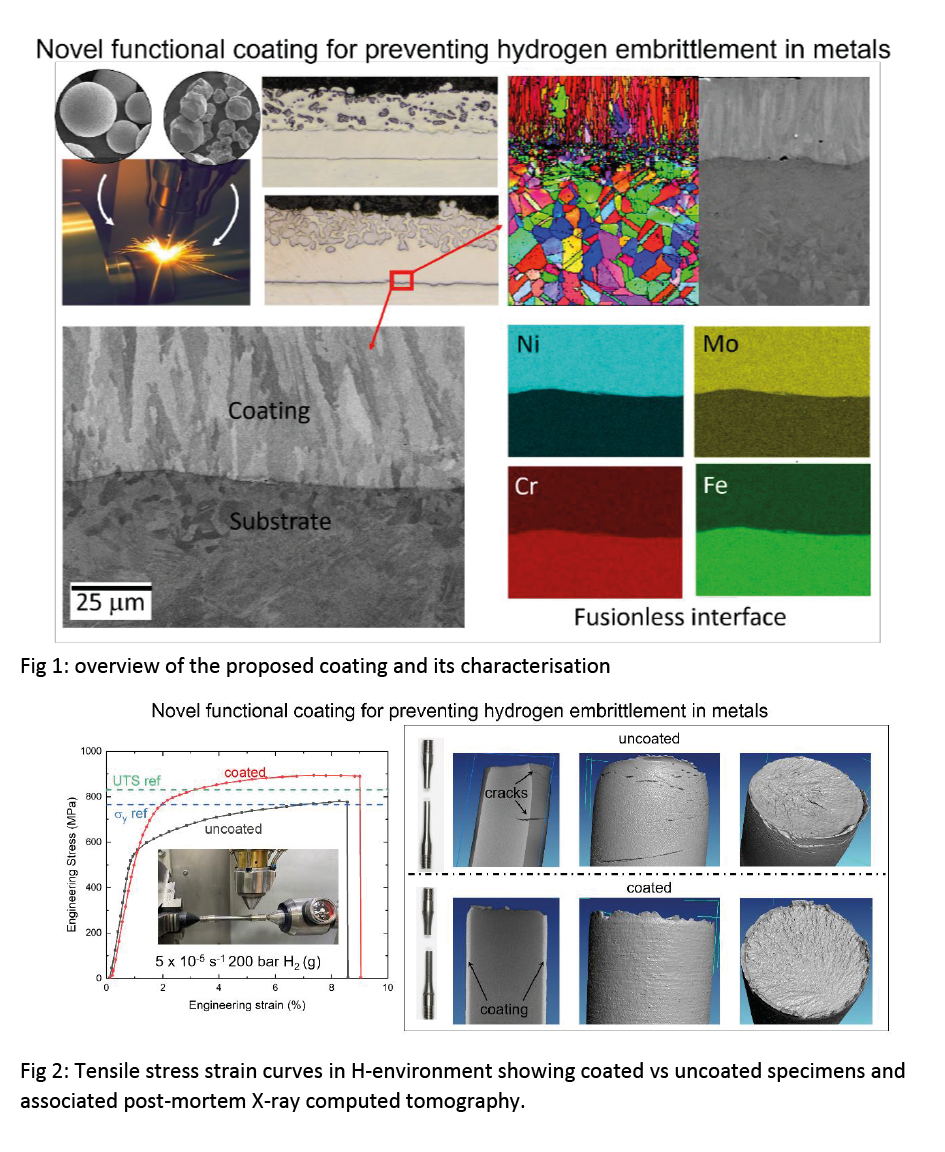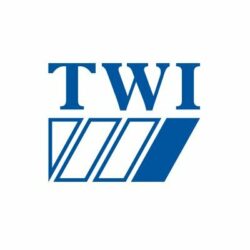This website uses cookies so that we can provide you with the best user experience possible. Cookie information is stored in your browser and performs functions such as recognising you when you return to our website and helping our team to understand which sections of the website you find most interesting and useful.

Novel Functional Coating Strategy for Preventing Hydrogen Embrittlement in Metals
Case Study
Royce’s Industrial Collaboration Programme (ICP) awarded £169,612.06 to a project from TWI to prevent hydrogen embrittlement, in turn helping to tackle the global sustainability challenge. The project utilised expertise across The University of Oxford and The University of Sheffield.
Hydrogen can cause catastrophic failures to structural materials, typically reducing its ductility and strength significantly, hence the phenomenon is known as hydrogen embrittlement. It accounts for a significant portion of corrosion related failures, which it cost £1.6 trillion per year [FG Hays, Now is the Time, World Corrosion Organisation]. On a fundamental level, this area has been explored over 100 years [W.H. Johnson, Proceedings of the Royal Society of London, 23 (156-163) (1875)], with various theories proposed. However, on an application level, a scalable, economic and effective technical solution to prevent such failures still requires investigation. This is urgently required to support a growing hydrogen-powered future with an estimated market size of £178b [Fortune business insights 2020]. In this work, we demonstrate a new and effective coating solution that recovers the materials strength in full for structural steels.
This study aimed to develop a new coating solution to prevent such failures by recovering materials’ mechanical properties. We focused on the application of pipeline steels for the need for hydrogen mobility (transportation). We have designed three coating systems and have them all successfully processed and optimised. Their mechanical integrity – cohesion to substrate – has also been tested under mechanical loading up to 40% engineering strain. Excellent adherence without delamination is demonstrated. We were able to evaluate the effectiveness of our coating by performing in-situ tensile testing under gaseous hydrogen environment – the first one of this kind – albeit many technical difficulties. We show the strength of the uncoated specimen with a significant loss of strength (by 100+ MPa), yet this is fully recovered with specimens protected with our coating. Our work demonstrates that the coating proposed is effective, and it has the potential to make a great impact by upgrading numerous infrastructures in the UK to accommodate the rapid transition towards a net-zero future. Our coating also shows tremendous potential in hydrogen storage and plasma shielding applications in the nuclear industry. The following activities are planned: 1. Dissemination of our technological achievement via joint-webinars, particularly to connect end-users by leveraging the unique position of the TWI ltd. 2. Publish our scientific output via internationally leading peer-reviewed journals. 3. Proposal preparation to further our study via mechanistic understanding. The Henry Royce Institute has been instrumental in providing us with the necessary financial support, as well as the cutting edge facilities such as thermal desorption spectroscopy and SIMS that were critical in characterising hydrogen.
“This feasibility study validated a new coating strategy that is effective in preventing mechanical deterioration of structure steels from hydrogen attack. The coating inhibits crack initiation and propagation in the structures, and it recovers the strength of the material. The economical coating solution has the capacity to upgrade current infrastructures, such as pipelines at speed and scale. It shows a great potential to set transformation in facilitating end-to-end hydrogen towards a rapid transition to a net-zero future.”
Dr Yuanbo (Tony) Tang
University of Oxford, Senior Researcher
Collaborators
The project facilitated a new collaboration with the three partners: Oxford, Sheffield and TWI.
Further Information
Further dissemination of the current work will take place, such as the Oil and Gas Industry Panel Meeting on, “Energy Transition and the Low Carbon Economy: Hydrogen and CCS, Renewable Energy, and Digitalisation.” in TWI and Abu-Dhabi.
Total award: £177,013.72 University of Oxford: £74,788.01 University of Sheffield: £54,282.20 TWI (large enterprise): £47,943.51.





